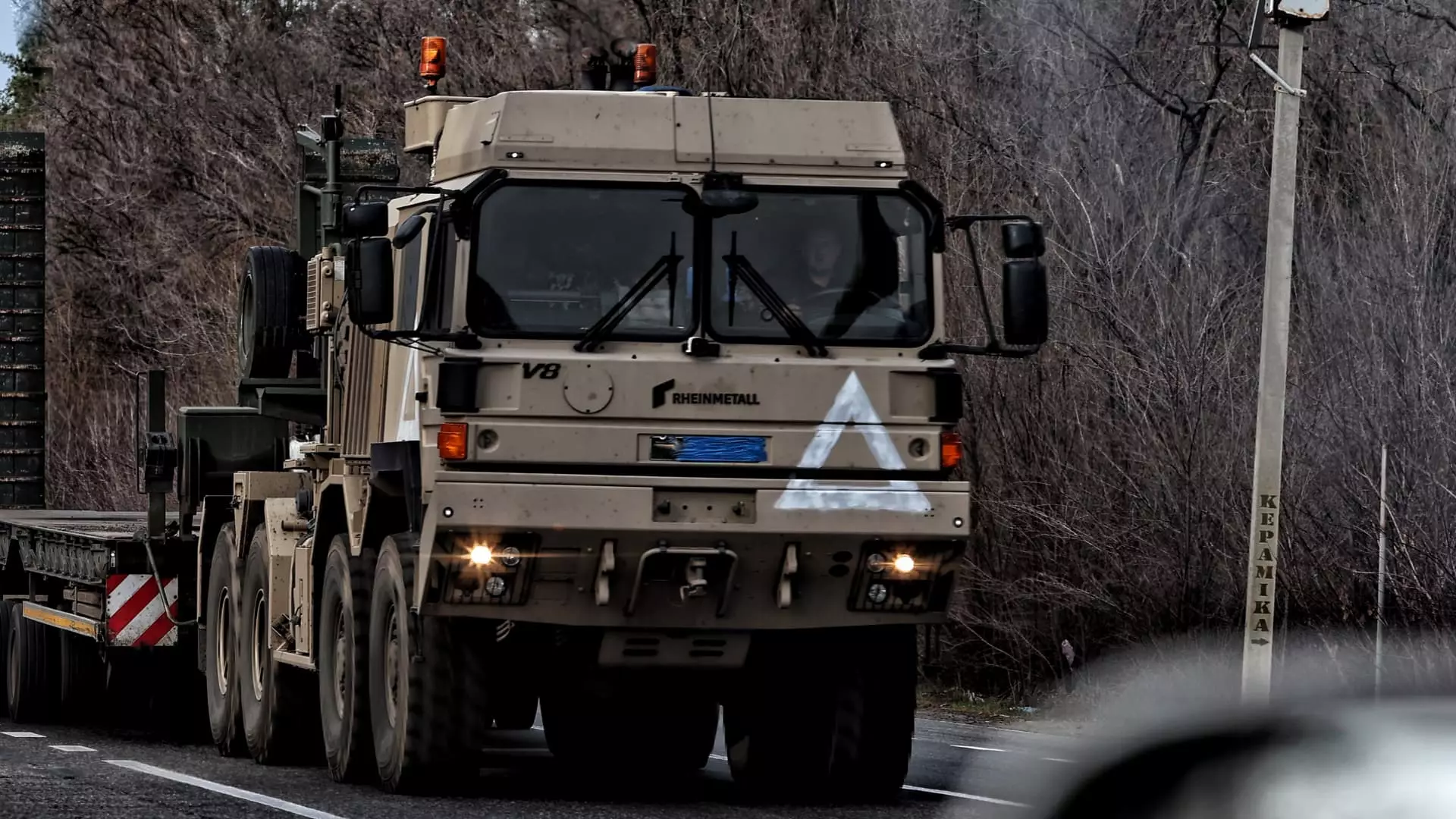Rheinmetall, a prominent player in the arms manufacturing industry, has recently made headlines with projections anticipating a staggering 70% growth in defense sales by 2025. The implications of this growth stretch beyond mere numbers—they signal a critical pivot in global defense policy and the business strategy of this German giant. Geopolitical tension, particularly surrounding the conflict in Ukraine, has radically altered the landscape for military contracts. In a world where defense is increasingly prioritized, Rheinmetall finds itself in a promising yet precarious position.
The surge in demand is fueled by pressing necessities arising from heightened security concerns. Nations are feeling the pressure to modernize their military infrastructures, driven by fears of aggression and instability in surrounding regions. Consequently, Rheinmetall has positioned itself as a crucial contributor in both supporting Ukraine’s defense against Russian advances and in equipping allied nations with the high-tech armament they so desperately need. Exploiting this shift, the company has fortified a portfolio expected to benefit immensely from European nations’ increased defense spending.
The Business of War: Rheinmetall’s Financial Performance
Corporate success in the defense sector is often intertwined with global crises, and Rheinmetall’s financial performance reflects this unsettling truth. The company recorded a 50% jump in defense sales in 2024 alone, with an impressive operating profit soaring to an all-time high of €1.48 billion ($1.61 billion). Such astonishing growth is a double-edged sword—while it signals economic success, it also amplifies ethical dilemmas surrounding profit derived from conflict.
In what could be classified as a military-industrial complex basking in the light of rising geopolitical tensions, Rheinmetall represents both hope and apprehension. As national treasuries loosen their strings to facilitate greater defense budgets, Rheinmetall stands to benefit enormously. Yet, this raises a crucial question: is wartime prosperity inherently ethical, or does it perpetuate cycles of violence that could destabilize societies long after hostilities subside?
Capacities and Responsibilities
Rheinmetall’s CEO, Armin Papperger, has expressed a sincere commitment to meeting the growing demands of the defense sector, emphasizing a vision of “Zeitenwende 2.0,” a concept reflecting Germany’s changing security policy. This evolution acknowledges the government’s willingness to spend more on defense and the private sector’s availability to respond. Investment strategies exceeding €8 billion over the past two years demonstrate an aggressive approach to expanding production capabilities.
But with great power comes great responsibility. The company’s pivot to a stronger market position necessitates an equally robust ethical framework. With the stark reality that these “security-related products” can lead to destruction and human suffering, Rheinmetall must grapple with its obligation to ensure that its advancements serve to protect rather than exacerbate conflict. The moral implications of arms manufacturing become even more pronounced when one considers the geopolitical realities in play.
The Broader Context: Economic Incentives and Global Alliances
The relationship between Rheinmetall’s financial fortunes and the larger geopolitical chess game highlights the unsettling reality of modern defense contracting. As European leaders scramble to bolster their military capabilities amidst pressure from both domestic and international players, Rheinmetall stands to gain significantly. Market trends suggest not only an increase in regional defense expenditures but also an urgent need for alliances that can secure supply chains and technological innovations.
As the U.S. continues to advocate for its NATO allies to invest more into security, European countries are beginning to heed these calls. This promises a windfall for defense companies like Rheinmetall, with analysts already revising target stock prices upward, reflecting a burgeoning sector rife with opportunity. Nonetheless, this transactional mentality toward national security raises further ethical dilemmas over whether investment in defense should take precedence over social welfare initiatives.
The stakes are undeniably high; Rheinmetall’s near-88% stock increase since the beginning of the year reveals a market enthusiastic about the future of defense spending. Still, the once-academic discussions around the ethics of arms dealings need to be grounded in a real-world understanding of what such fiscal booms mean for global stability and peace.
In an era characterized by anxiety over security and national interests, the question remains: can we ground military success within a framework that values human life over profit? As Rheinmetall prepares for its monumental growth ahead, it finds itself operating amid a complex interplay of ethics, responsibility, and the inherent flimsiness of peace in a world that seems increasingly inclined toward conflict. The next few years will undoubtedly reveal whether this trajectory proves sustainable, beneficial, or destructive to the overarching ideals of international cooperation and peace.

